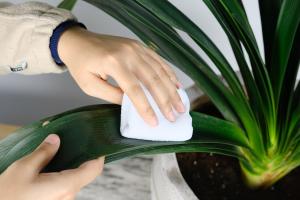Introduction
Planting seeds is an important step in gardening. While most gardeners believe that watering seeds immediately after planting is essential, the question of whether it should be done or not is still debated upon. In this article, we will discuss the reasons why you should or should not water seeds right after planting and provide some helpful tips on seed care.
Why You Should Water Seeds Right After Planting
Watering seeds right after planting is generally recommended because it helps to ensure that they do not dry out before germination. When seeds are planted, they require moisture to start the germination process, and by watering them immediately after planting, you ensure that they receive the necessary moisture to start this process.
In addition, watering seeds can help to soften the soil around the seeds and make it easier for the seeds to germinate. When the soil is hard and compacted, seeds may have a harder time pushing through the soil and breaking the surface. Watering the seeds helps to create a more hospitable environment for germination.
Why You Shouldn't Water Seeds Right After Planting
Although watering seeds immediately after planting is generally recommended, there are some situations where it may not be the best option. For example, if you have planted seeds in an area that is prone to heavy rainfall or water-logging, then watering them immediately after planting may actually be harmful to the seeds.
Excess moisture around the seeds can lead to conditions that are not conducive to germination, such as mold and rot. In such situations, it may be better to wait until the soil has dried out slightly before watering the seeds. This will help to reduce the risk of damage to the seeds from excess moisture.
Tips for Watering Seeds
Whether you choose to water your seeds immediately after planting or not, there are some important tips to keep in mind when it comes to seed watering. Below are some helpful tips to follow:
1. Use room temperature water: When watering seeds, it is best to use room temperature water. Water that is too cold or too warm can shock the seeds and slow down the germination process.
2. Water gently: When watering seeds, it is important to be gentle. Use a watering can with a gentle flow or a misting spray bottle to avoid washing away the seeds or creating soil disturbances.
3. Water consistently: Consistent moisture is important for seed germination. Avoid letting the soil dry out completely, but also be careful not to over-water or water too frequently.
Conclusion
In conclusion, whether or not you should water seeds immediately after planting depends on a number of factors, such as the weather, soil conditions, and the specific type of seed you are planting. However, by following the tips and guidelines provided in this article, you can ensure that your seeds have the best chance of germination and healthy growth.

 how many times do yo...
how many times do yo... how many planted tre...
how many planted tre... how many pine trees ...
how many pine trees ... how many pecan trees...
how many pecan trees... how many plants comp...
how many plants comp... how many plants can ...
how many plants can ... how many plants and ...
how many plants and ... how many pepper plan...
how many pepper plan...































